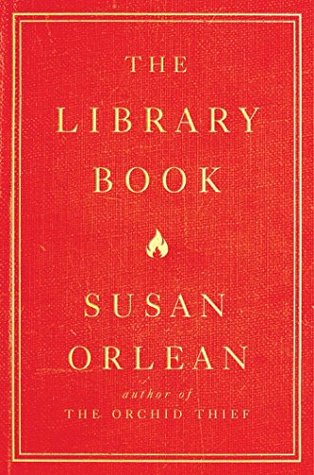More on this book
Community
Kindle Notes & Highlights
Pigeons the color of concrete marched in a bossy staccato around the suitcases.
Throughout my childhood, starting when I was very young, I went there several times a week with my mother. On those visits, my mother and I walked in together but as soon as we passed through the door, we split up and each headed to our favorite section. The library might have been the first place I was ever given autonomy. Even when I was maybe four or five years old, I was allowed to head off on my own. Then, after a while, my mother and I reunited at the checkout counter with our finds. Together we waited as the librarian at the counter pulled out the date card and stamped it with the
...more
It wasn’t like going to a store with my mom, which guaranteed a tug-of-war between what I wanted and what my mother was willing to buy me; in the library I could have anything I wanted. After we checked out, I loved being in the car and having all the books we’d gotten stacked on my lap, pressing me under their solid, warm weight, their Mylar covers sticking a bit to my thighs. It was such a thrill leaving a place with things you hadn’t paid for; such a thrill anticipating the new books we would read.
I turned into a ravenous buyer of books. I couldn’t walk into a bookstore without leaving with something, or several somethings.
One of the few places homeless people are welcomed, given access to computers and the Internet, and permitted to dally all day (unless they act out) is a public library. Libraries have become a de facto community center for the homeless across the globe. There is not a library in the world that hasn’t grappled with the issue of how—and how much—to provide for the homeless. Many librarians have told me that they consider this the defining question facing libraries right now, and that they despair of finding a balance between welcoming homeless people and somehow accommodating other patrons who
...more
For years, movie studios were major book-pinching culprits. Rather than simply checking out books they needed for their research—and thus having to abide by the due date—studios sometimes dispatched two assistants to the library to steal them. The scheme involved one of the assistants taking a position outside a window and the other pitching the desired book out the window to his or her counterpart. This happened so often that the library had an employee whose main job was to visit the studios on a regular basis to get the books back. To help foil the through-the-window scheme, the librarians
...more
It brought me close, in my musings, to my mother, and to our sojourns to the library. It was wonderful and it was bittersweet, because just as I was rediscovering those memories, my mother was losing all of hers. When I first told her that I was writing a book about libraries, she was delighted, and she said she was proud that she had a part in making me find them wondrous. But soon the dark fingers of dementia got her in their grip, and they pried loose random bits of her memory every day.
My mother imbued me with a love of libraries. The reason why I finally embraced this book project—wanted, and then needed, to write it—was my realization that I was losing her. I found myself wondering whether a shared memory can exist if one of the people sharing it no longer remembers it. Is the circuit broken, the memory darkened? My mother was the one person besides me who knew what those gauzy afternoons had been like. I knew I was writing this because I was trying hard to preserve those afternoons. I convinced myself that committing them to a page meant the memory was saved, somehow,
...more


